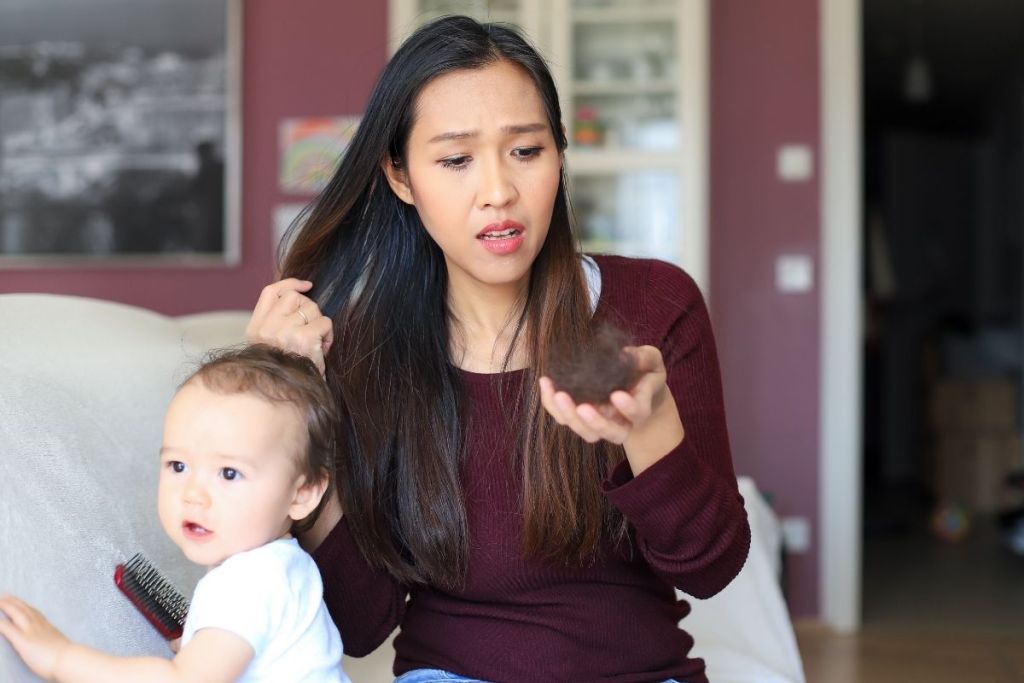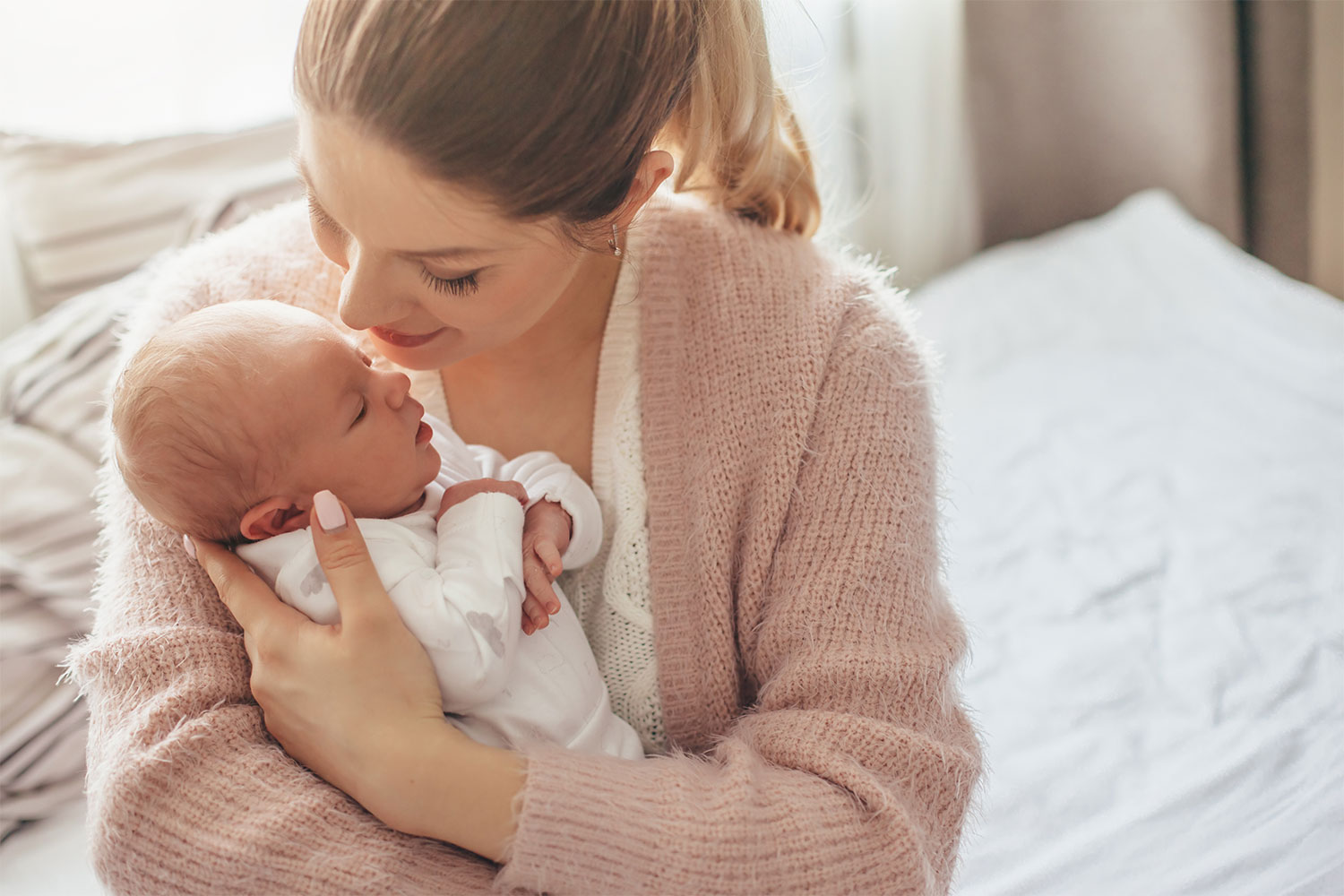As if your body hasn’t put you through enough already during nine months of pregnancy, postpartum hair loss jumps in to keep the changes coming even after delivery.
During pregnancy, your body produced more estrogen than usual, which prevented the usual daily hair from falling out. All of this “extra” hair (it was the same rate of growth but a lower rate of loss) might have given you that famous pregnancy hair that is shiny and full. But once the estrogen production drops off after giving birth, your hair beings to fall out again, but now it may be making up for lost time. You’ll probably lose the same amount you would have over the last nine months, but now, it’s all at once.
It’s normal for this to go on for months, and sometimes not to start for months, so don’t worry if you’re still losing clumps when your baby is starting to sit up. It takes a full year for the body to recover from pregnancy and birth, and this is part of the ride.
Just because it’s natural doesn’t mean there isn’t anything you can do to help grow and strengthen your hair and prevent the more-than-usual loss. Things should even out over time, but in the meantime, try these tips.

Adjust your diet
Your hair grows from the nutrition you put into your body, so eating your veggies is still important even though a baby isn’t growing inside you anymore. Eating anything protein-packed will help because hair follicles are made from protein. Also make sure you’re getting enough iron in your diet, not only to replace the blood you may still be losing in the postpartum period but because anemia has been linked to hair loss.
Some of the best foods that promote hair growth are:
- Almonds
- Avocados
- Berries
- Carrots
- Eggs
- Kale
- Red meat
- Salmon
- Seeds (chia, flax, sunflower)
- Shrimp
- Soybeans
- Spinach
- Sweet potatoes
Sneak these foods into smoothies (berries and spinach, not shrimp and salmon!) for extra vitamin boosts throughout the day.
Take your vitamins
You don’t only have to get your vitamins from your food. Add some vitamins into your daily routine if you aren’t taking them already. Continuing to take your prenatal vitamins in the postpartum period is already recommended, especially if you’re breastfeeding. The vitamins and supplements that help hair health are:
- Biotin
- Iron
- Omega-3 fatty acids
- Selenium
- Vitamin A
- Vitamin C
- Vitamin D3
- Vitamin E
- Zinc
If your multivitamin doesn’t already have these, there are many daily vitamins on the market that are specifically loaded with these to promote healthy hair. These ones are yummy gummies.

Try new shampoos and conditioners
You don’t have to get your biotin from a vitamin, you can also get it from a shampoo. There are biotin shampoos and postpartum shampoos that may help, not to mention just any volumizing shampoo. Of course, the same is true for conditioners. Sometimes even just changing products gives hair a natural refreshment and may help clear away any build-up from drugstore shampoos and conditioners that were weighing hair strands down.
Don’t harm hair with heat or chemicals
Your hair may be more brittle and fragile postpartum, so don’t hurt it with the heat from a blow dryer or curling iron or the chemicals from dye or salon treatment. Now is the time to let your hair rest and be nourished with conditioners instead of harsh treatments. You can still try to get out of the house for a pampering salon day, but ask them not to use irons or dryers and to focus on nourishing the hair instead of stripping it.
Embrace it
If nothing helps, remember that this is likely temporary. You can hide it with a ponytail or bun if you feel insecure about thinner hair or take this opportunity to get that short bob cut you’ve always wanted to try. A lot is new and different with your postpartum body, and this is one more part of you to accept and grow to love. Your hair will likely return to what was normal pre-pregnancy, but it may always be a bit different, too, just like you.
If your hair is still falling out in clumps after a full year, check with your doctor to make sure nothing else is causing your hair loss.



